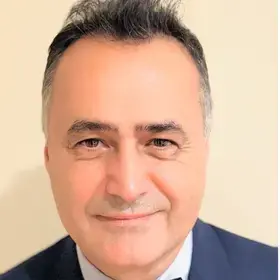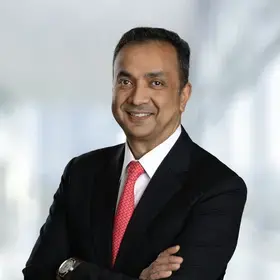David Marshall has been working on justice reform in conflict-affected states for more than 25 years. Among other experiences, he led the first Human Rights Council–mandated investigation into alleged atrocities in South Sudan; worked as the legal advisor to the United Nations (UN) human rights office in Nepal; and oversaw the UN monitoring of investigations and trials of alleged Islamic State of Iraq and the Levant defendants in Iraq.
He is now the justice advisor for the Peace and Stabilization Operations Program at the Canadian Ministry of Foreign Affairs (Global Affairs Canada) and writes extensively on human rights and justice issues. This summer, he will teach the Columbia Summer course United Nations and Human Rights, which is offered to visiting students, matriculated students, and students in the United Nations Studies CPA program.
“I want to share decades of experience from a practitioner’s perspective so as to better prepare students for this type of professional life,” said Marshall. “And there is no better place for that than Columbia. A center of research excellence, global experts, and close to the center of gravity—the UN.”
In a recent conversation, Marshall discussed the topics students will explore in his course, what inspired him to pursue a career in the field of human rights, and his advice for those aspiring to work for the UN.
What is the goal of your United Nations and Human Rights course?
One goal is to dispel myths about what the UN is in terms of its role and responsibilities. Another is to provide a deeper understanding of how the many moving parts of the UN human rights machinery work. We will examine, in detail, themes (transitional justice, conflict-related sexual violence, criminal accountability) and country situations (Ukraine, Myanmar) by bringing in guest speakers who are leading practitioners in their field. Finally, the course does something very few with a focus on the UN do, namely providing an operational perspective of what happens when human rights concepts meet real-world situations.
Who should take your summer UN course?
The course is designed for those who may be considering a professional path with an international or regional organization (UN, AU, OAS, E.U.); a ministry of foreign affairs; or international or national civil society organizations that focus on human rights promotion and protection. In addition, the course and its reading materials would be of great benefit to those students who want to examine the historical path of key human rights concepts from the 1990s through 2024.
What inspired you to work in the field of human rights?
I have had an interest in injustice and the criminal justice system since high school. In grade 10, I became a volunteer at Amnesty International, writing letters to governments concerning prisoners of conscience. That motivated me to study law, and then I practiced criminal law, first in London and then the U.S., with a focus on U.S. criminal justice issues including the death penalty, excessive use of force by law enforcement, and conditions of detention. I then pivoted to the UN as the criminal procedure advisor, followed by work on criminal justice reform in post-conflict states.
Could you share any unique experiences from your extensive career?
I worked at the UN headquarters in Geneva and New York, and in the field in Iraq, Nepal, South Sudan, and Sudan, with a focus on justice issues. The most striking experiences have been witnessing deep wells of resilience in the face of terrible suffering and trauma. I met a young woman in South Sudan who was kidnapped and forced to walk over 200 miles from Bor to Akobo to then escape two years later and return, alone and on foot, to Bor. I met survivors of bombings in Baghdad (in 2006 alone there were more than 36,000 civilian deaths due to terrorism) and conflict-related sexual violence in South Sudan. It is a humbling and awe-inspiring experience to be in their presence and learn about how they have overcome dire obstacles.
Can you describe your leading role as the justice advisor for the Peace and Stabilization Operations Program at the Canadian Ministry of Foreign Affairs?
It’s quite a different role from practicing law or working for an international organization. The work is moored to our national interest in there being an inclusive, rights-based global order that respects international norms and standards. I advise our leadership on policies related to accountability for atrocity crimes (genocide, crimes against humanity, war crimes). This means informing what we say publicly about events in, say, Ethiopia, Myanmar, or Ukraine, and advising on what programs we should financially support, like transitional justice in Ethiopia.
What is your advice for students aspiring to work for the UN?
First and foremost, the UN is not for entry-level applicants, because the UN does not train or mentor staff in any meaningful way. Students should first develop professional skills and expertise that will be of relevance to the UN, which could mean working for an NGO or government agency. I also recommend they develop a specific area of expertise and not be a generalist. Also useful, given the competition, are language skills. Do not underestimate the importance of speaking at least two of the six official UN languages.
About the Columbia Summer Session
The Columbia Summer Session offers hundreds of courses for Columbia students and students from other domestic and international institutions. Whether on campus or online, the Summer Session gives students the opportunity to study with Columbia’s esteemed faculty, pursue academic interests, advance studies, and prepare for graduate school.


